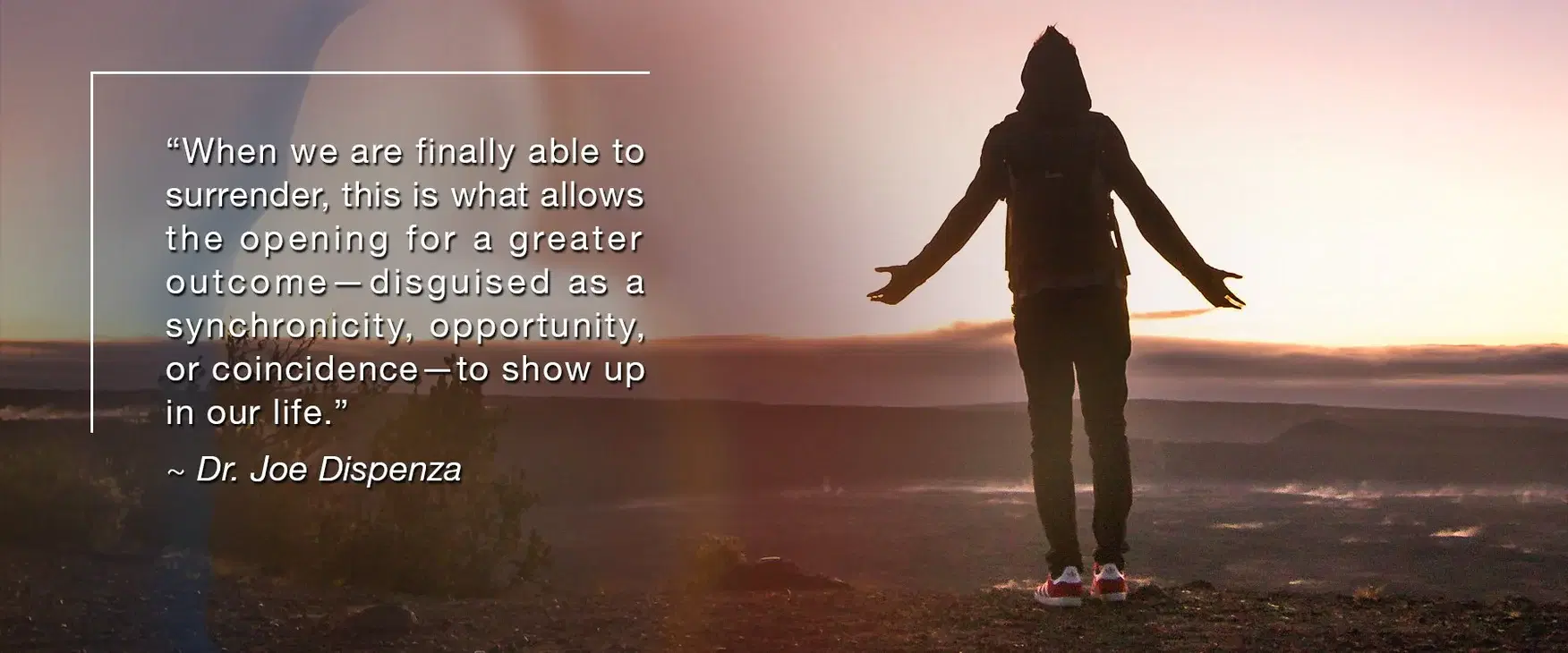Prayer Changes Everything:
Part II
Dr Joe Dispenza | 28 September 2018
In Part I of Prayer Changes Everything, I talked about the fact that while many people possess the intent of their prayer, many others miss the corresponding emotions that go with it. I can’t stress this enough—the elevated emotions you feel when thinking about the fruition of your prayer are imperative to its manifestation. In a sense, traditional prayer is an ask, and that’s the problem. If you ask, you are in lack because you are wanting—and wanting means you don’t have it. If, however, you get up as if your prayer has already happened, you’re no longer in lack because you’re feeling the emotions of your future in the present moment.
Thus, the more you experience these elevated emotions, whether it’s gratitude, kindness, love, joy, inspiration, wholeness, etc., the less you feel like your normal, everyday self. Chances are likely then that compared to the daily baseline of your everyday self, to live in these elevated feelings is to live in the unknown.
If you can sustain these elevated feelings independent of your habits and the emotional addictions of your body, you’re going to feel like your prayer has already been answered. This requires you to maintain these heart-centered emotions regardless of the circumstances in your life—those conditions that are made up of certain people, things, and objects at certain times and places. It also means you need to stay present in that new state of being without anticipating your future, which is unconsciously based on the memories of your past. When we can self-regulate these emotions, we’re no longer trying to predict when or where our prayers are going to be answered because we feel like they have already been answered. We could say then that you must feel the emotion(s) ahead of the experience.
When you do this, on some level you are surrendering the when, where, and how your prayers will be answered, and since you’re no longer trying to predict or force outcomes and solutions, this means you’ve moved into a state of trust. So how do you maintain a healthy balance between prayer, intention, surrender, and trust?
Think of your intention as a signal or transmission being sent out, and think of the related elevated feeling as the energy that draws the event back to you. Therefore, at some point you have to let go and surrender how the outcome will manifest—otherwise, if you can predict it, it’s a known. On the contrary, if you can’t predict it, then you are in the unknown.
Your intention is like dropping a stone in a pond. The ripple, or wave it creates, is the signal. The thing is, we never know how big that pond is—that’s the unknown—so sometimes it takes longer than others for that signal to reach the shoreline and bounce back to us. However, because we know the wave is the universe’s law for the transference of energy, we know at some point the signal will find its way back to you, as long as you are in a vibrational match with the energy of the emotion from which you created your prayer.
The second part of surrender is the transcendental moment where we let go and get out of the way. For many people, it’s only when they reach the end of their rope (that’s the known) that they surrender at this level, but the moment they do—that’s the instant they’ve entered the unknown. To get out of the way is to get beyond yourself, and this is an act of trust. To trust at this level is to say, I don’t know how this is going to happen or, I have given everything I have and I’m just going to let go. It’s this letting go process that makes room for something greater to occur.
For many people, although they may pray over and over, sometimes several times a day, beneath their prayer they maintain the underlying belief that they have to be the shaker, mover, and actor who brings their prayers to fruition. Often this brings people to the end of their emotional belief, and it’s there—if they persist, go beyond that limit, and let go—that the miracle or answer to their prayer occurs. Of course, at times action is required, but the point is that when we finally surrender and let go, we allow for something greater to take over. That’s the art and that’s when the magic happens.
When we are finally able to surrender, this is what allows the opening for a greater outcome—disguised as a synchronicity, opportunity, or coincidence—to show up in our life. Often this happening, event, or answer to our prayer is something greater than what we had imagined, or perhaps as something we never could have imagined with our limited, human mind. When you stop trying to figure it out and stop trying to answer your prayers yourself, then you don’t care if or when the answer to your prayer is going to happen—because you know eventually it will. I think this is a really healthy point to be in the creative process, because this is the ultimate state of surrender.
To surrender is to let go to such a degree that you’re no longer waiting for your prayer to be answered. When you release it, you’re no longer in control.
So think about this: How would you live your life if you knew your prayers were going to be answered? Because that’s exactly how your prayers are going to be answered. That’s the moment your life becomes your prayer—and the moment your prayer becomes your life.

Comments